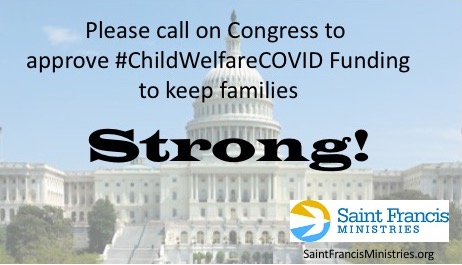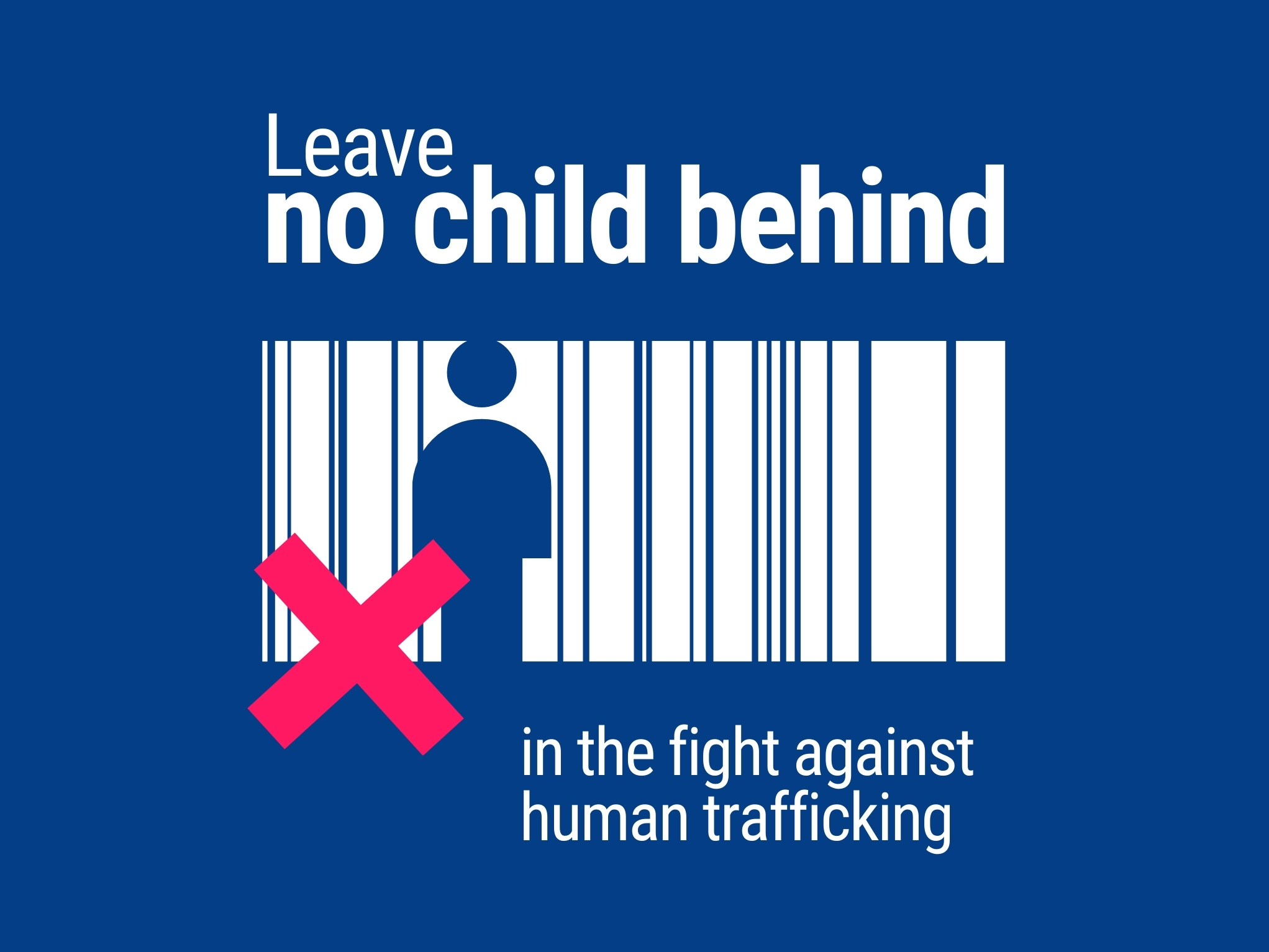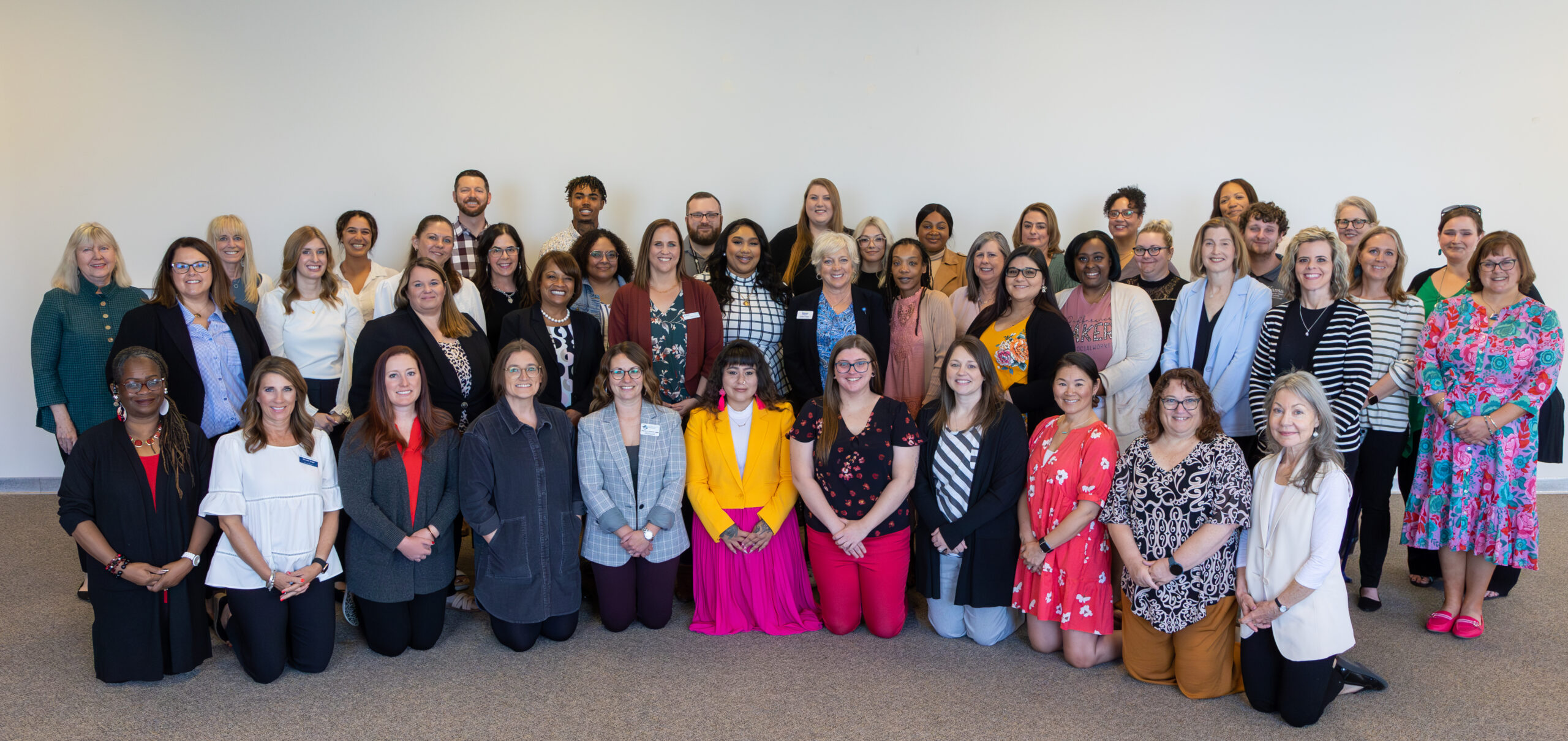Saint Francis Ministries has joined organizations from around the world and the United States to ask Congress to provide support as we take care of children and families who are being impacted by the coronavirus pandemic. Below is the text of the letter that has been sent to U.S. leaders.
Dear Majority Leader McConnell, Speaker Pelosi, Minority Leader Schumer, and Minority Leader McCarthy:
As national, state, and local organizations dedicated to the well-being of vulnerable children and families, we write to urge Congress to act immediately to provide crucial support to families facing the stress and disruptions resulting from the COVID-19 pandemic, by equipping the child welfare system with the tools it needs to handle the crisis. State and local leaders across the country are working hard to continue vital child welfare prevention and intervention services during these extraordinary times, but they face major challenges, so Congress must act now to address these needs.
Funding is urgently needed to strengthen the state and local systems that prevent and respond to child abuse and neglect and that address the needs of children, youth, and families already in the foster care system. The impacts of COVID-19 are putting stress on families who are attempting to navigate new public health safety protocols, school closures, uncertain childcare arrangements, job losses, social isolation, and significant barriers to many critical support services.
Without interventions to support families, the kinds of stress that the COVID-19 pandemic is creating contribute to increased risk of child abuse and neglect. Strengthening the system to face these challenges requires a comprehensive approach that addresses the entire child welfare continuum. While we are grateful for Congress’ bipartisan actions to respond to the pandemic so far, they have not yet addressed these specific challenges. Our organizations urge Congress to act swiftly to:
1. Support families to keep children safe from child abuse and neglect.
- Increase funding to CAPTA Title II Community-Based Child Abuse Prevention (CB-CAP) grants by $1 billion to quickly deploy resources directly to locally-driven prevention services and programs. CB-CAPs provide community-based grants to all 50 states for the express purpose of preventing child abuse and neglect, including key services like state child abuse hotlines, voluntary home visiting programs, parent support programs, baby pantries, distribution of food and medication, family resources centers, and respite care services. This will target specific prevention services to communities where it is needed most, help state and local systems adapt to the unique challenges of serving families during this pandemic, and avoid waiting lists.
- Increase funding to Title IV-B, Part 2, the MaryLee Allen Promoting Safe and Stable Families Program (PSSF) by $1 billion to help eliminate the need for out-of-home placements, both to protect children and to prevent the child welfare system from being overwhelmed by the crisis. PSSF is a critical funding source for stabilizing families, supporting foster parents, and other prevention efforts for states during times of crisis.
- Ensure the FMAP rate increase is provided to the new Title IV-E Prevention Program. This is important to clarify because the Title IV-E Prevention Program is not currently reimbursed at the FMAP rate, but instead is reimbursed at a 50% rate (it moves to FMAP reimbursement in 2027), so we recommend a total of 50% plus whatever is the final FMAP increase.
2. Strengthen response and intervention systems to meet the challenge of the COVID-19 pandemic.
- Increase funding to kinship navigator programs by $20 million to ensure access to information and resources for older relative caregivers at acute risk of COVID-19, such as food, health and safety supplies, and other necessities. Grandparents and other relatives who step in to raise children keep them safely with family and out of foster care, saving taxpayers more than $4 billion each year. These caregivers, who are often older, are struggling to access basic food, medicine, and supplies because it requires them to leave their home, increasing risk of exposure to the virus which could lead to incapacitating illness or death and no one else to care for the children.
- Increase funding to CAPTA Title I by $500 million to ensure state and local child protection systems can adapt to these new circumstances while continuing to respond quickly to the reports of child abuse and address barriers to ordinary service delivery during the pandemic. This funding will ensure the child protection workforce has necessary technological and protective resources to prevent the interruption of vital support services to children and families amidst this crisis. In person investigations are being disrupted in ways that put children at risk of great harm.
- Increase funding to the Court Improvement Program (CIP) by $30 million to mitigate the impact of the pandemic on the functioning of child welfare courts. Court shutdowns, need for emergency investment in technology, and reduced staffing are already resulting in delayed hearings, and, ultimately, compromised child safety, delayed family reunification, and loss of accountability and critical support to child victims and their families. CIP is the only source of federal funding for state courts related to child welfare and is well-positioned to help address challenges in the administration of legal proceedings in this field.
3. Address the needs of older youth already in, or transitioning out of, the foster care system.
- Increase funding to Title IV-E Chafee funds by $500 million to allow states additional funding to support young people in the transition from foster care to adulthood. This provides states with the necessary resources to ensure a flexible, rapid response to the emerging needs of transition-age youth and Chafee-eligible former foster youth, including financial assistance, housing, and employment assistance, in the face of this pandemic.
- Further, we support the Social Services Block Grant (SSBG) Coalition request to increase funding to the Social Services Block Grant by several billion dollars to help states provide critical services and supports tailored to the needs of their community, including child protective services, child abuse prevention services, and foster care.
These funds can fill in gaps not covered elsewhere and backfill many human services, given the flexibility of SSBG. This should also include a set-aside for Tribes, which does not currently exist. It is crucial these targeted supports are provided to help families navigate this uncertain time, and vital to ensure children remain safe in their homes.
Thank you in advance for partnering with us to support the wellbeing of vulnerable children and families.





